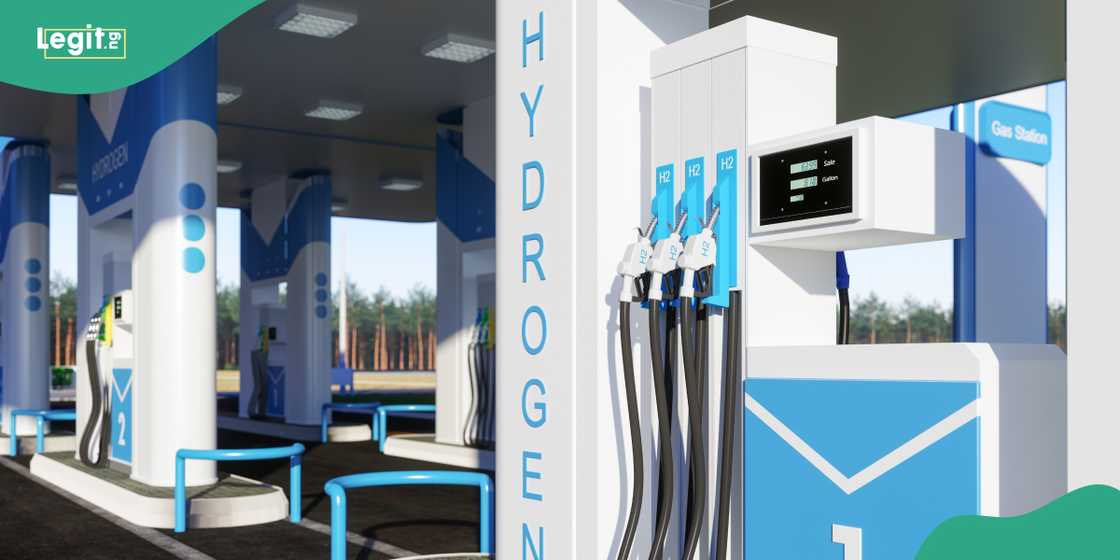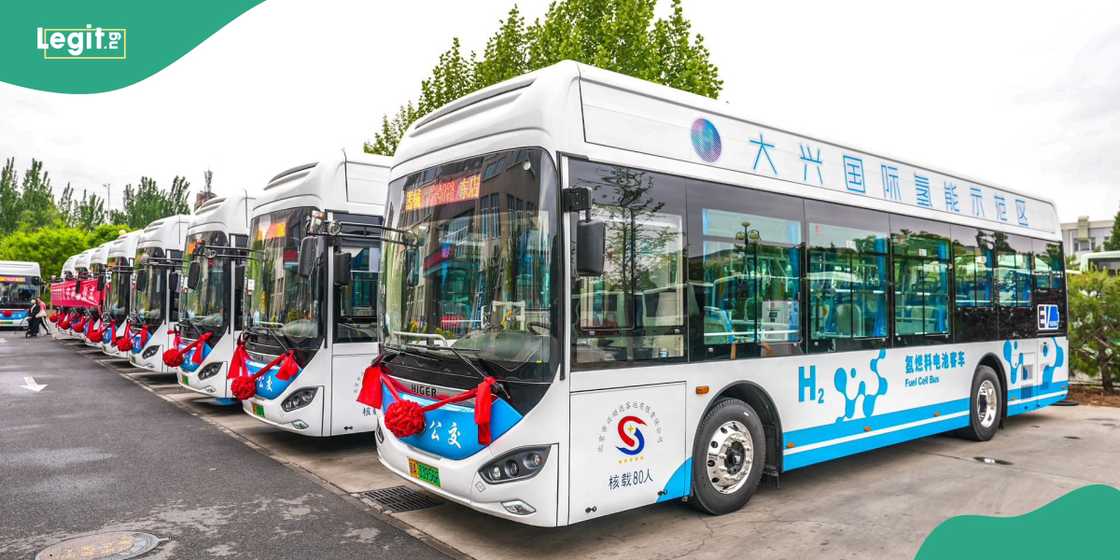Top Expert Shares Usefulness of Hydrogen Amid Nigeria's Energy Challenges
- A renewable energy specialist, Dr. Engr. Ibrahim Muritala, has said technology, policy and infrastructure challenges must all be addressed collaboratively to make seaborne transportation of hydrogen a reality
- In an interview with Legit.ng, Muritala said hydrogen will likely be an essential commodity as the world focuses on decarbonisation
- To facilitate the transportation of renewable energy across vast distances in the form of electrons to molecules, the expert explained that hydrogen shipping presents both technological barriers and opportunities
CHECK OUT: Education is Your Right! Don’t Let Social Norms Hold You Back. Learn Online with LEGIT. Enroll Now!
Legit.ng journalist Ridwan Adeola Yusuf has over 9 years of experience covering energy issues.
Texas, USA - Dr. Engr. Ibrahim Muritala, a Global Hydrogen Leader – Global Sustainability, ABS, has said as a clean energy carrier, hydrogen holds immense potential, especially for difficult-to-decarbonise sectors such as industrial processes and maritime shipping.
Muritala, a member of the national executive committee (NEC) of the Nigerian Institution of Environmental Engineers (NIEE), explained that hydrogen’s versatility allows for hydrogen transportation in various forms such as liquid, gaseous, or chemical carriers like ammonia or methanol, through pipelines (like blending with natural gas), rail, trucks or ships.

Source: Getty Images
The chemical element, he said, stands as an energy vector for the global energy transition, providing a cleaner and more sustainable future when applied as fuel.
He said while speaking with Legit.ng:
“Its appeal stems from its abundance, derived from diverse sources such as water, natural gas, biomass and others.”
Furthermore, Muritala stated that hydrogen's unique ability to produce only water vapour when utilised in fuel cells and combustion systems makes it an energy material for reducing emissions in transportation and industrial applications.

Source: Twitter
His words:
“Moreover, hydrogen acts as a versatile energy storage medium, capable of storing excess renewable energy (as electrons) to molecular form, helping to stabilise power grids reliant on intermittent sources like wind and solar.
Risks of hydrogen
Meanwhile, despite its potential as a clean energy source, Muritala noted that hydrogen poses several serious risks at every stage of its value chain—from production and storage to use and transportation.
He said:
“It is extremely vulnerable to unintentional fires and explosions due to its flammability, broad explosive range and low ignition energy.
“Additionally, because of its low density, it must be stored at high pressure or undergo cryogenic liquefaction, which increases both the danger of pressure vessel failures and cryogenic embrittlement. Safe handling and use of metallic components are made more difficult by the possibility of hydrogen embrittlement, which necessitates careful material and operational technique selection to reduce these inherent dangers.”
The expert concluded that establishing a robust global hydrogen supply chain necessitates significant investment in production, storage and transportation infrastructure. This, according to him, includes developing specialised tankers, vessels and infrastructure at ports to handle the unique properties of hydrogen, such as its low density and cryogenic storage requirements.
He said:
“While the challenges are significant, the potential for decarbonising the shipping sector through hydrogen presents a compelling economic and environmental case, driving innovation and collaboration among stakeholders worldwide.”

Read also
FG bans 60,000-litre fuel tankers, others from Nigerian roads, gives date for implementation
Read more energy reports in Nigeria:
- OPEC expects Nigeria to produce 4 million barrels of oil daily
- FAAC report indicates NNPCL removed N13.7trn from FG's account
Climate change: Expert speaks on actions to mitigate heat waves
Earlier, Legit.ng reported that Engr. Muritala said the current severe heat wave experienced in Nigeria has been exacerbated by climate change.
Muritala stated that this necessitates urgent action from various stakeholders to mitigate its impacts and build resilience.
PAY ATTENTION: Сheck out news that is picked exactly for YOU ➡️ find the “Recommended for you” block on the home page and enjoy!
Source: Legit.ng




